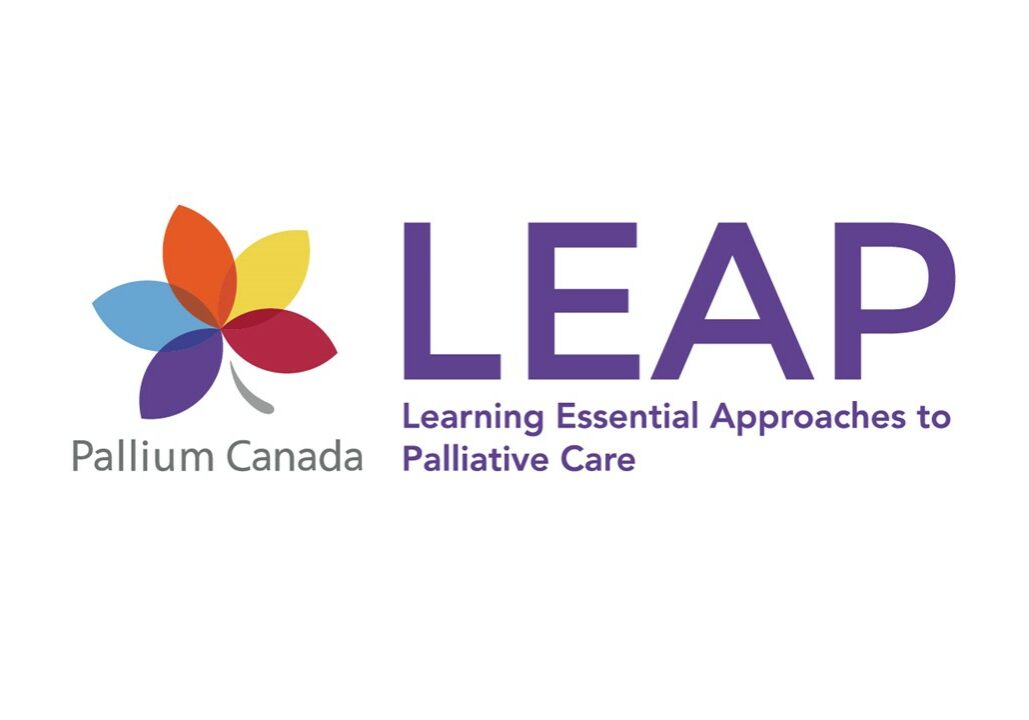Learning Essential Approaches to Palliative Care (LEAP) courses
Cost: FREE for a limited time (valued at $250 - $350)
Language: English and French
Location: Online
Application: Required as spots are limited. Applicants must work in the Champlain Region.
Courses: We offer two different LEAP courses.
- LEAP Core
- LEAP Long-Term Care

Image owned by and rights attributed to Pallium Canada.
COURSE DESCRIPTION
LEAP Core (Online) is an interprofessional course that focuses on the essential competencies to provide a palliative care approach. LEAP Core is taught by local experts who are experienced palliative care clinicians and educators.
Who should take LEAP Core?
For healthcare professionals who provide care for patients with progressive life-limiting illnesses.
This includes: Physicians, RNs, RPNs, Pharmacists, Social Workers, etc.
Image owned by and rights attributed to Pallium Canada.
COURSE DESCRIPTION
LEAP Long-Term Care focuses on the essential competencies to provide a palliative care approach, with case studies taught by experienced palliative care experts.
Who should take LEAP Long-Term Care?
Only long-term care staff members.
This includes: Physicians, Nurses, RPNs and Social Workers who work in long-term care.
Image owned by and rights attributed to Pallium Canada.
Credentials
Application


Schedule
Learning outcomes
Upon completion of LEAP Online, learners should be able to:
- Promote and undertake advance care planning discussions
- Assess and manage pain, delirium, gastrointestinal symptoms, hydration, nutrition and dyspnea
- Recognize and diagnose depression, anxiety, grief and initiate treatment plans
- Develop plans to address spiritual, religious, or psychosocial needs
- Prepare patients and families for last days and hours
- Initiate essential discussions related to palliative and end-of-life care in daily work
- Understand and apply the criteria to be met before initiating palliative sedation

Topics covered
- Being aware
- Taking ownership
- Decision-making
- Pain
- Gastrointestinal symptoms
- Hydration and nutrition
- Advance care planning
- Delirium
- Respiratory symptoms
- Psychosocial and spiritual care
- Grief
- Essential conversations
- Last days and hours
- Request to hasten death
- Palliative sedation
- Resources and quality improvement



